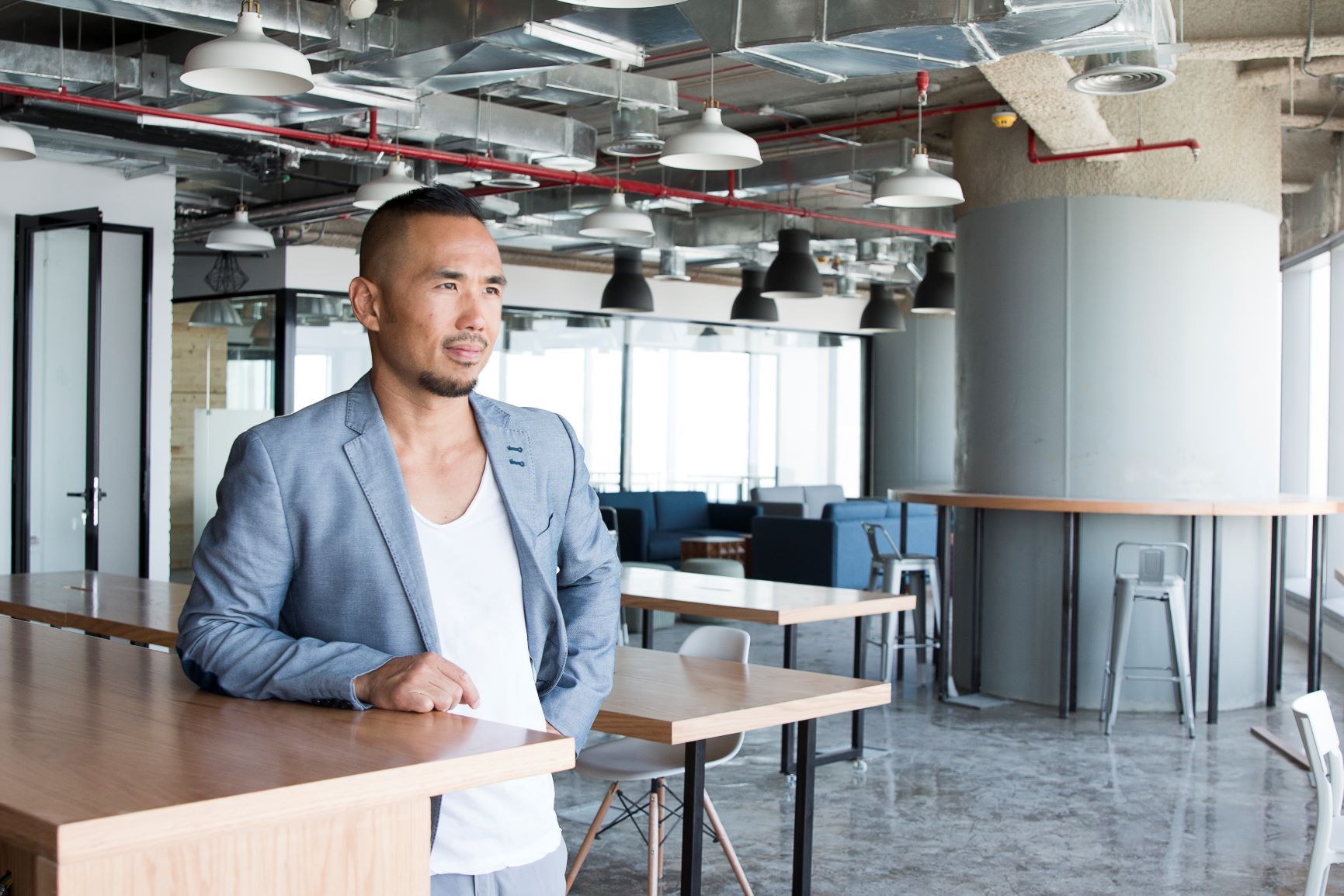In conversation with Bernard Lee of GlassQube Coworking

Bernard Lee was an investment banker in New York before moving to Abu Dhabi to work in debt restructuring for the Executive Council, where he met his current business partner Fahad Al Ahbabi.
Following the government’s Emiratisation programme, Lee was made redundant and set about establishing a real estate fund with Al Ahbabi. In the process of trying to find an office for their new venture, the pair struggled and so they decided to establish Abu Dhabi’s first co-working space – GlassQube in 2016, to offer affordable office spaces.
We spoke with Lee about his entrepreneurial journey.
Why did you become an entrepreneur?
When I left [the Executive Council] I had a choice to go back to New York but the thought of going back to banking was not an option, I couldn’t visualise going back to that life, so I spoke to my partner and came up with some ideas.
We envisioned a real estate fund, but there was no office space. Co-working was not in the UAE at the time at all, it was a very frustrating experience, business rents were very high, double where they are today. I was shocked at the lack of choice and cost and I made the decision that it’s something we should look into doing ourselves. That’s the story of why we did it, it was out of necessity. The demand wasn’t necessarily there, but we saw a need.
It was extremely high risk because both my children were born, I was supporting my family, I had no income for a couple of years. It was touch and go for a few years.
What were your main challenges?
We spent one and a half years creating a business plan and launched GlassQube in 2016 and within two months, the oil price crashed and we were dealing with a whole new market. The price of oil drives everything in this market, it doesn’t matter what sector you’re in. Oil will dictate the performance of the market whether you’re selling shawermas or real estate. The crash completely turned out our initial projections.
It took a while for the market to accept what we had built. For the first year people still didn’t understand co-working. We had exposed ceilings, concrete walls and people would come and ask when we would finish. Some people thought we were a restaurant, it took a long time for the market to catch up. We never have these questions anymore.
How did you keep going?
I had already passed the point of no return, there was no alternative, this business had to succeed. What I see from a lot of startups in the region is they want to keep their day job. They have one leg in and one out. It’s a risk-mitigating way to go, but unless you’re all in…There’s something about that experience of being awake at night, at 4am sweating, not knowing whether you will survive or not. There’s something about that experience that’s very valuable and I think that’s lost on entrepreneurs who are unwilling to quit their jobs.
How do you decide where to open a new location?
We look at the location the same way we look at real estate – ease of access, improvements to lifestyle and cost. Now, all of our projects in the pipeline are partnerships with the landlords. We have a new location in the pipeline in Abu Dhabi, the next two will be in Dubai and we’re also looking at Africa and Pakistan.
What will your industry look like in the next decade?
People see it as an easy real estate pseudo play. It’s much more than that, it’s providing a space and experience as a service. Real estate is one factor, but anyone with capital can build it, hire a designer, but if you don’t know how to offer the right experience to retain them while maintaining a margin, that’s very hard to do. We learned that the hard way. I literally believed that if you build it they will come. I thought people would be so excited, but it took a long time for people to get what we were doing. In the future flexible workspaces will become a permanent part of commercial real estate portfolios. Institutional landlords will allocate a space to support this type of business.


